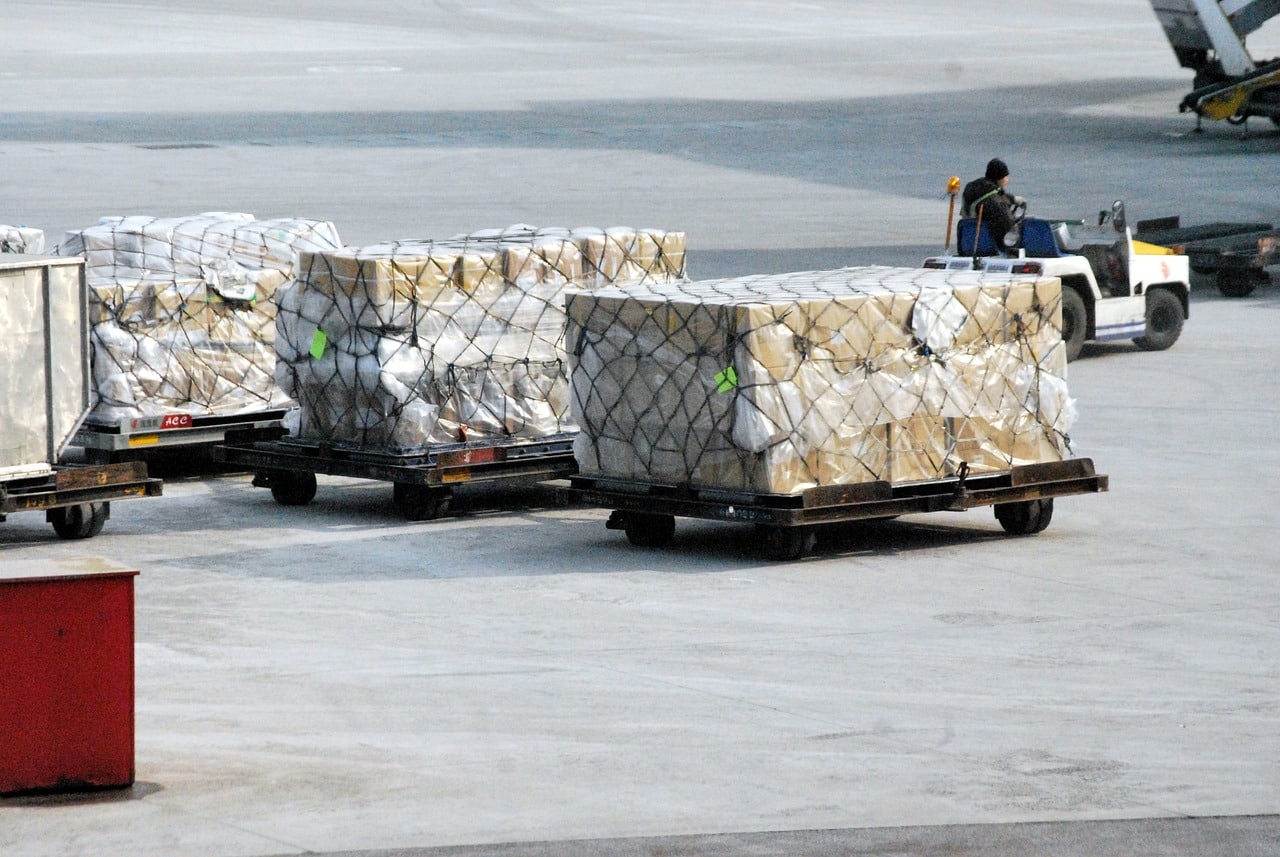Air freight often isn’t the first choice for businesses looking to move cargo overseas. It’s viewed as expensive, with limited capabilities in terms of what can actually be sent. But while there are some cargo types you may find difficult to transport via air freight, there’s actually a lot more that you can send. So, what are the different types of air cargo? And what do you need to know before shipping overseas?
Air Freight: What Cargo Can You Ship?
What are the different types of air cargo?
Air freight can be separated in to two broad categories.
General cargo
This is the freight service used by most international traders. And it is the term used to refer to good that don’t have any particular needs. It’s not oversized, doesn’t need to be refrigerated or have a short shelf life, it doesn’t require a special licence to carry, and it’s not living. So, if your goods can be boxed or palletised and are not considered hazardous, they should be fit for air freight.
Special cargo
Special cargo is essentially anything that does not fit within the remit of general cargo. This may include temperature controlled goods, livestock (usually smaller animals, such as cats and dogs, but occasionally larger animals, such as horses, for sporting events) human tissue and remains, and hazardous goods. Many airlines will refuse to carry most of these cargo types. That’s not to say that you can’t send them via air. But if you do find a service that is willing to accept them, you will typically pay a lot more.
Common special and restricted cargo items
If you are looking to send your cargo via air freight, it’s a good idea to familiarise yourself with the restricted goods list. These include:
- Explosives of every kind – Including fireworks, detonators, and detonating fuses.
- Compressed gas – Including fire extinguishers, airbags, dry ice, respirators, aerosols, and light bulbs.
- Toxic materials – Including pesticides, peroxides, radioactive materials, and corrosive materials, such as batteries.
- Flammable items – Including solids, such as activated carbon, rubber debris, and matches. And liquids, such as fuels, alcohol, turpentine, and air fresheners.
- Items that have the potential to become biohazards – This can include a range of materials, such as untanned animal hides, human organs and tissue, and human remains, including ashes.
- Magnetic materials that don’t come in degaussing packaging – Such as industrial magnets.
- Biochemical products – Including infectious materials and medical waste.
What can you send via air freight?
If your cargo does not fit within any of the restricted categories listed above, you can almost certainly send it via air. Which means that most of the UK’s common imports and exports are just fine for shipping via air freight. So, if you’re looking to ship machinery to Japan or import stone from the USA, or circuitry from Thailand, then you’re pretty much good to go.
What is the best way to organise air freight?
Unless you have boots on the ground in both your departure and arrival territories and a dedicated logistics team, the easiest way to manage air freight is to work with a freight forwarder.
With a company like Plexus Freight, you can be confident of a secure, trackable door to door air freight service. Our highly experienced road hauliers and trusted partners will move your goods from their point of origination to secure warehousing near the point of departure, and collect them upon arrival for delivery to their ultimate destination. Meanwhile, our customer service team will source the best air freight services and prices for your needs.
International air freight is often viewed as difficult for businesses to manage. But if you work with a freight forwarder, you can benefit from someone else’s experience. Gaining the insight and guidance you need to get your cargo from A to B as quickly, efficiently, and safely as possible.
Find out more about Plexus Freight’s air freight services.


